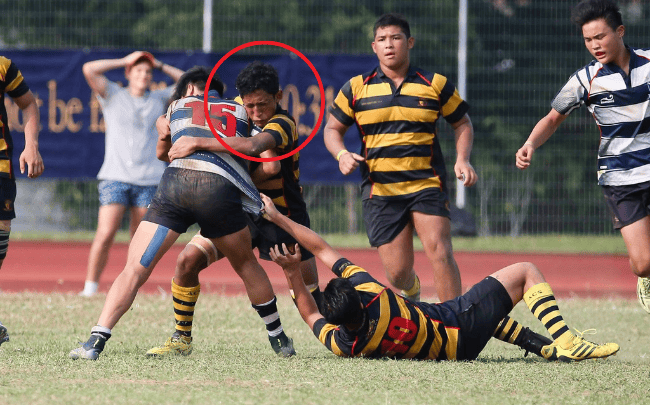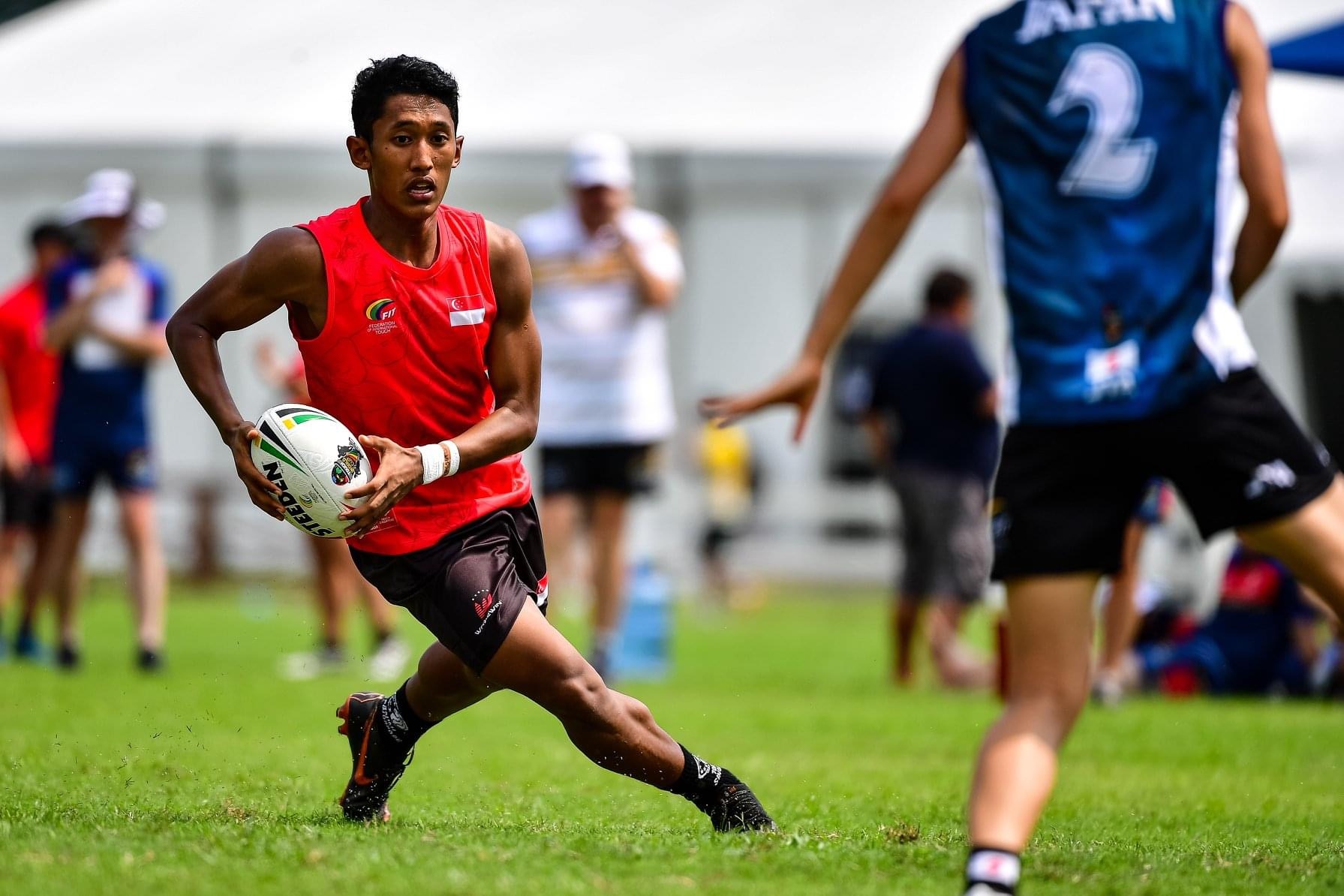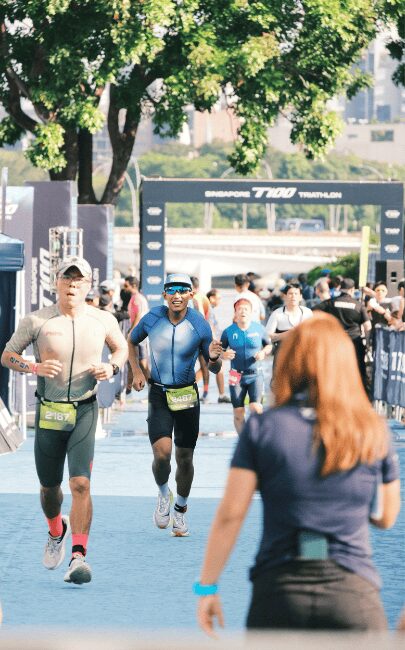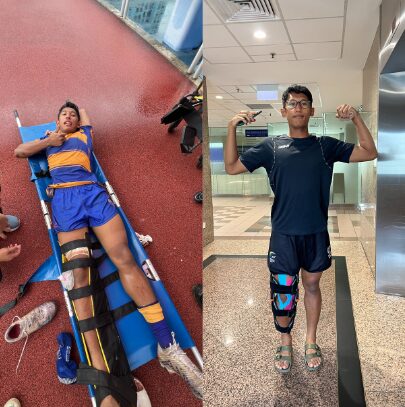
13 Jun Rugby Nearly Broke Him – Now He’s Training for the Ultimate Solo Race
For most of his life, rugby was everything to Solihin. The hits, the brotherhood, the legacy – it shaped his identity, his values, and his path. But when his body began breaking down, and the injuries refused to stop, Solihin did something few athletes dare to do: he walked away from the game that made him – and found a new kind of fire in the world of Triathlon.
What followed wasn’t just a change in sport. It was a transformation in mindset, lifestyle, and purpose.
Where it All Began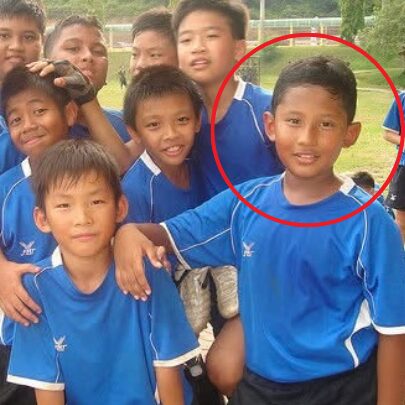
“My first rugby memory wasn’t even on the field – it was on TV. I was watching the NRL, a match between the Dragons and the Sharks back in 2006. I was immediately drawn to the intensity and the physicality, even before I understood the rules.”
From the moment he saw that game, something clicked. A year later, he transferred to a school without football, took a chance on rugby – and never looked back.
“A huge part of picking up rugby was family – my uncle and cousin played rugby, and I wanted to follow in their footsteps. On top of that, my grandfather was an ACS boy, and that made me even more determined to play rugby and represent his alma mater – one of the powerhouses of Singapore schoolboy rugby. So I did.”
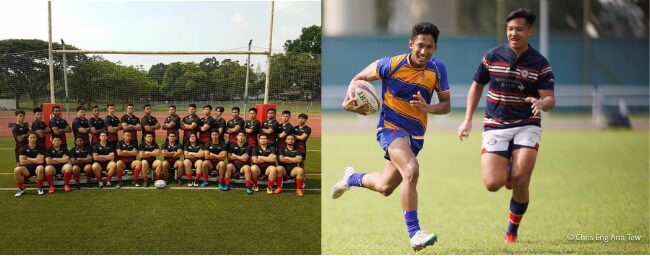
Solihin remembers his first tackle vividly, the aches that followed, and the joy that came with it. He quickly rose through the ranks, representing Chongzheng Primary, ACS(I), Temasek Polytechnic, the National Team age group, and the Police Force Team.
He was never the flashiest player, but he was known for his gritty defense and relentless work rate – earning him the nickname “The Rottweiler” from rugby parents.
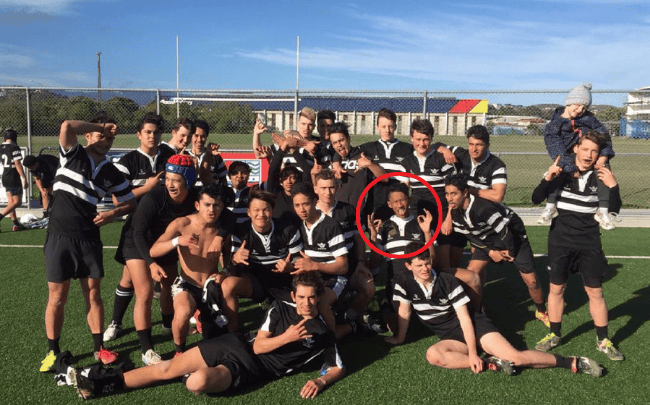
A pinnacle moment came when he was selected to train and play in New Zealand at Hutt Valley High School.
“It felt like everything was falling into place – I was playing overseas, surrounded by a strong rugby culture, and I genuinely believed I was on the path to something greater. But that was also where everything changed.”
A torn rotator cuff during a match became a turning point – his third serious injury, and a blow to his confidence that signaled deeper questions ahead.
Leaving the Game
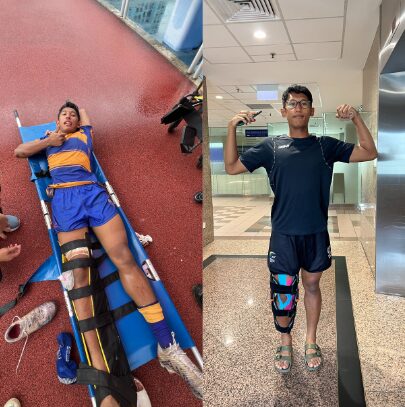
The injuries didn’s stop. Over the years, they multiplied: fractured finger, strained hip and glutes, torn MCL – not once but twice.
“When I tore my MCL again on 2nd June 2024, I just sat there thinking, ‘That’s it. I’m not jeopardising my career anymore.’ I felt completely drained.”
What made the decision even harder was that he still had so much more to give, but the game had started to give less in return. He couldn’t commit to training, was falling behind on plays, and felt increasingly disconnected from the team.
“That made me feel like I was letting everyone down.”
So he pivoted. Triathlon offered him a new kind of challenge, one that was less reliant on team dynamics and more dependent on personal accountability.
“It gave me a sense of direction, personal growth, and control over my own performance.”
Learning to Breathe Again
The biggest obstacle? Swimming.
“The last time I had properly swum was during a water safety course – maybe 15 or 16 years ago. I’d tell myself, ‘I can still swim.’ but then I’d check my watch: 3 minutes per 100m? It was brutal.”
And just when it seemed like things were finally coming together, life threw another punch. His first race – scheduled on his birthday – had to be missed due to work.
“I’d trained hard, invested money, and prepared myself mentally, only to be told I had to fulfil my duty. I was devastated. I stopped training for a month. I stopped creating content. I even considered going back to touch rugby, especially with national trials around the corner.”
Bur rather than give up, he reframed the setback. Ironman 70.3 Western Sydney in September became the new goal. The pain became fuel.
Bringing Rugby Grit to Endurance Sport
“Rugby taught me resilience. The kind where you get knocked down – literally – and the only option is to get back up.”
Now, that same spirit powers through him through Triathlon training. No teammates, no playbook – just discipline. Sure, there are moments where he quit. We are only human. But every time that happens, he comes back the next day with more fire.
“What rugby drilled into me was showing up, whether for your team or for yourself. Now I show up for me.”
He never pegged himself as someone who would jump into the pool just to “work on cardio”. But now? He finds himself running and cycling distances he never imagined – sometimes multiple sessions a day, squeezed before, during, or after shifts. From training 3 times a week for rugby, he now finds himself training nearly every day.
“There’s no team warm-up or post training banter. It’s just me, my schedule, and a lot of discipline.”
It’s less social, more internal – but he has learned to find satisfaction in that solitude.
Moments of Meaning
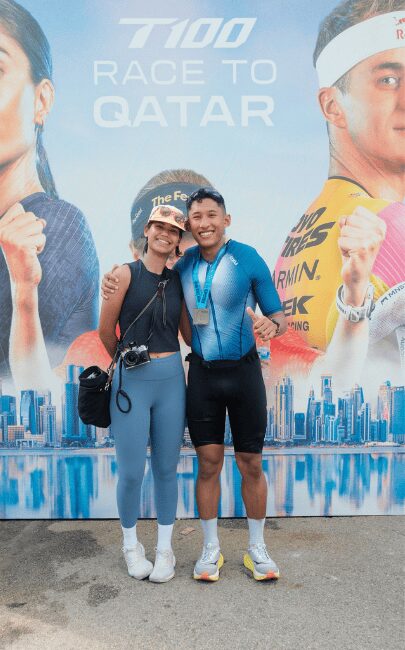
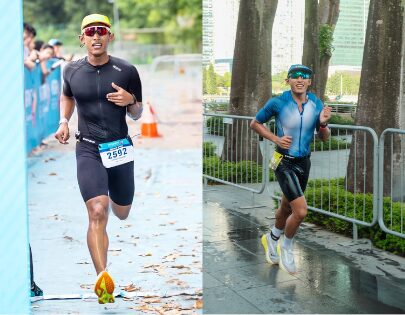
Though he hasn’t completed a full triathlon yet, Solihin has already raced in events like the Metasprint Series Singapore and the prestigious Singapore T100.
“When I crossed the finish line at T100, I was in pain—but I was also tearing up and smiling. Seeing the woman I love at the finish line cheering me on—that made it unforgettable.”
He later found out he placed 6th in his age group—a clear sign that his dedication was starting to pay off.
“That was the moment I knew: this is where I’m meant to be.”
Redefining Identity and Passion
This journey has taught Solihin a lot—especially about who he is when no one is watching.
“Back then, everything was about co-dependency—brotherhood, team cohesion, win or lose together. Rugby Solihin wouldn’t have understood solo sports. He would’ve asked, ‘Why train alone when you can go to war with a team?’ ”
Now?
“I’ve learned how freeing it is to be accountable only to yourself. That’s where real growth happens.”
He believes identity is not fixed, and passion doesn’t always roar—sometimes it’s a quiet decision to show up at 5 a.m., even when you’re exhausted.
Facing Doubt and Choosing Drive
“Swim. Without question. It’s my biggest mental and physical hurdle.”
But Solihin has developed mantras to live by:
“Stay far away from your comfort zone that you won’t know how to get back.”
“Be delusional enough to believe you can. Be disciplined enough to prove it. That’s how you win.”
What helped him push through was reconnecting with why he made this switch in the first place – to grow, to rebuild, to take on a challenge that was full his.
His partner’s support has also been vital. She runs, rides, lifts with him, and pushes him—reminding him he’s not alone, even in solo sport.
“Doubt is always there – but so is the drive to prove myself right.”
What’s Next?
“Right now, it’s all about Ironman 70.3 Western Sydney. I’m not here just to participate—I want that World Championship slot. And I’ll keep pushing until I earn it, even if it takes years.”
While he hasn’t ruled out a return to Touch Rugby or Rugby, for now, Triathlon is his calling. The pull toward a sport with less injury risk – and one where he could managge his own progress – was too strong. (Unless Touch Rugby is in the 2032 Brisbane Olympics!)
His Touch Rugby coach once said, “You don’t have to give up playing, at the end of the day, it’s all about the friendships forged and the memories made.” That stuck with him. Because at its core, whether it’s Triathlon, Rugby or life – it’s the people, the journey and the meaning we create that matter most.
At the same time, Solihin is also preparing for marriage, building a home, and completing his degree.
“It’s a different kind of endurance—but I’m all in.”
A Final Message
To anyone standing on the edge of change, unsure whether to leap:
“If you’re thinking of changing paths—just do it. Especially if it scares you.”
He’s a believer of stepping outside your comfort zone and that pain, when paired with purpose, becomes growth.
When he left Rugby for Triathlon, he struggled. He doubted himself. But through that discomfort, he found fulfilment – earned on his own terms.
“So, move forward, even if it’s messy. So far outside your comfort zone that you forget how to go back…You’re not abandoning who you were—you’re becoming who you’re meant to be.”

